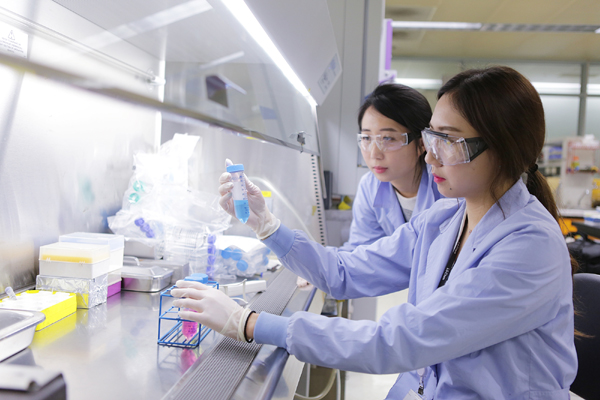LG Chem will receive $12.6 million (14.1 billion won) from the Bill and Melinda Gates Foundation to develop a new polio vaccine from 2017 to 2020, the company said Wednesday.
LG Chem will use the grant to advance overseas clinical trials on a new “inactivated polio vaccine” and to expand the company’s vaccine production factories located in Osong, North Chungcheong Province, it said.

The demand for polio vaccines is surging as experts have pointed out the dangers of existing oral polio vaccines. Existing vaccines contain a weakened version of a live virus which sometimes mutates to cause polio, experts say. In response, the World Health Organization (WHO) has encouraged the use of inactivated polio vaccines, which do not carry the risk of mutation and enacted a policy to stop oral polio vaccine use.
However, many countries are experiencing difficulty obtaining inactivated polio vaccines because of the high level of production technology required and difficulty securing production facilities that meet international standards. Currently, only a handful of suppliers are available globally.
LG Chem has developed its inactivated polio vaccine since 2014 and is currently preparing for Phase 2 clinical trials. It will supply the vaccine to the global market starting in 2020 once it gets the go-ahead from WHO in preliminary qualifications in the same year, company officials said. The company plans to produce its vaccines at the Osong plant following the approval.
"We are delighted to have a meaningful partnership with the Bill and Melinda Gates Foundation to improve global health welfare," said Song Jee-woong, president of LG Chem’s Life Science Division. "We will be able to contribute to eradicating polio worldwide by providing safe and efficient vaccines, thanks to the firm support of the foundation."
LG Chem became the first company in 1996 to create a genetically modified hepatitis B vaccine (Euvax B) and gain WHO approval to provide the foundation for vaccine exports. Since then, the company has succeeded in localizing its meningitis vaccine (Euhib) through continuous investment in research and development. The company also won a UNICEF contract amounting to $81 million for its pentavalent combination vaccine (Eupenta), the company said.

